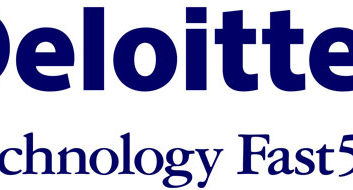5 Factors Impacting Healthcare IT according to AHS
Posted by | September 15, 2011
 There are currently two overarching themes impacting the healthcare industry today. First, the slow-growth global economy is continuing to burden physicians with financial pressures. Secondly, there are increasing complexities for businesses due to pending healthcare reforms and regulations.
There are currently two overarching themes impacting the healthcare industry today. First, the slow-growth global economy is continuing to burden physicians with financial pressures. Secondly, there are increasing complexities for businesses due to pending healthcare reforms and regulations.
Partner company AdvantEdge Healthcare Solutions (AHS) has a unique industry position as a provider of medical billing services. With a solid understanding of how upcoming changes will impact the industry, here are some of the trends AHS is experiencing.
The Economic Climate
One lesser-known result of the recession in the healthcare industry is that patients are less willing to go to the physician. In particular, people with higher deductible insurance plans often feel the pinch when it comes to co-pays, and as a result, are limiting the number of visits to a doctor’s office. As the number of insured on high deductible plans increase, the number of people going to doctors will decrease (especially for elective procedures).
Regulation Transitions
Healthcare providers, payers, software vendors, clearinghouses, and third party billers will be significantly impacted by two major billing code changes that are coming in the next year—the 5010 and ICD-10 transitions. Companies have started the transition process, and some are already realizing the associated challenges. By working with partners like AHS, companies can effectively plan best practices for the implementation of these changes in advance, reducing the number of road bumps later.
The Medicare Quandary
The reimbursement of services rendered and the impact of the budget battles in Washington on Medicare are major concerns. It’s been suggested that Medicare reimbursement will only be reduced by 2 percent for providers, but this downplays the biggest impact.
A formula adopted by Congress called the Sustainable Growth Rate (SGR) has been overridden each year it has been in effect. The built-up, cumulative SGR takes effect on Jan. 1, 2012, and Medicare reimbursement for providers will be reduced by 29 percent. That 29 percent deduction will go into effect unless Washington can reach an agreement.
As many clients in the healthcare IT industry have a fair amount of Medicare patients, this has the potential to have a substantial impact on business profitability. This is a very real threat that has not yet been fully realized.
President Obama’s Healthcare Reforms
Healthcare reform will add more insured patients to the health system, ultimately putting increased pressures on the already-strained cost side of the system. As a result, physicians must learn to be more efficient in their processes as their patient numbers increase. They will also need to adjust to varying levels of returns from insurance carriers than they have experienced in the past.
Preparing for what’s ahead
Companies like AHS have been monitoring trends in the industry, and are on the forefront of implementing efficient solutions to mitigate any challenges that arise. They’re actively working to quantify the impact that these changes might have for their customers.
While companies continue to look for ways to minimize the impact of the Great Recession and healthcare reform, finding and implementing strategies to streamline processes and increase efficiency are likely the best case scenario. But without a doubt, the best way that growing healthcare IT companies can prepare is by planning for potential contingencies ahead of time.
In order to address and overcome the challenges facing their customers, AHS recently expanded its management team, and welcomed two industry veterans. John A. (Jay) Roberts has been appointed Chief Financial and Administrative Officer, and Michael Youmans has joined as Senior Vice President of Sales and Marketing. Their experience is essential in today’s complex healthcare environment, bringing even greater value to AHS and its clients.



